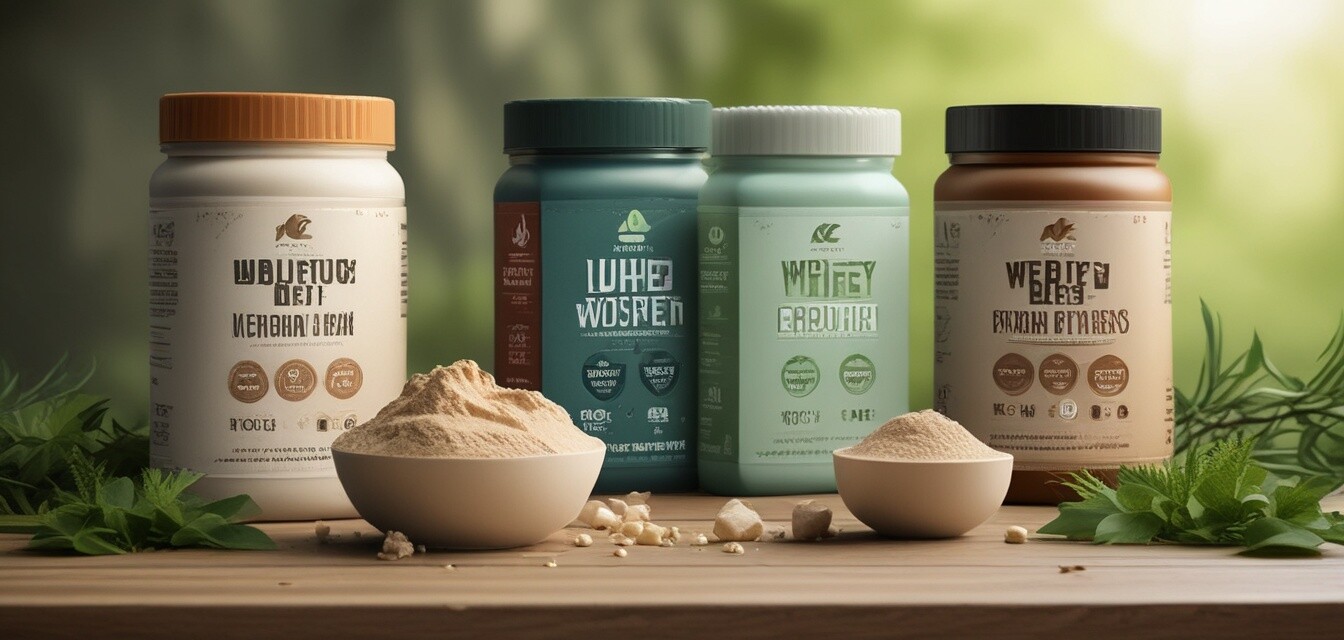
Comparing whey and plant-based protein: Which is better?
Key Takeaways
- Whey protein is derived from milk and is known for its high biological value and amino acid profile.
- Plant-based protein sources are typically more sustainable and suitable for vegans or those with lactose intolerance.
- Nutritional effectiveness may vary based on individual fitness goals and dietary restrictions.
Choosing the right protein supplement can feel overwhelming with so many options available in the market. Two of the most popular types of protein are whey and plant-based proteins. Both offer unique benefits, but which is better? In this article, we'll dive into a comparative analysis of whey protein versus plant-based protein focusing on nutrition and effectiveness.
Understanding protein sources
What is whey protein?
Whey protein is a complete protein derived from milk during the cheese-making process. It is valued for its high biological value, which means the body absorbs it efficiently. It's particularly popular among athletes and fitness enthusiasts due to its fast absorption and rich amino acid content.
What is plant-based protein?
Plant-based protein, on the other hand, can come from a variety of sources including peas, brown rice, hemp, and soy. It is a great option for vegans and vegetarians, and while it may not always have the same amino acid profile as whey, many blends combine different sources to achieve a complete protein.
Nutritional Comparison
| Component | Whey Protein | Plant-Based Protein |
|---|---|---|
| Protein content (per serving) | 20-25g | 15-25g (varies by source) |
| Amino Acid Profile | Complete (high BCAAs) | Often incomplete (but can be combined for balance) |
| Digestibility | Easily digestible | Varies (some may be harder to digest) |
| Calories | Low to Moderate | Low to Moderate |
Which is more effective for muscle building?
For those focused on muscle gain, whey protein can be more effective because of its quick absorption and amino acid profile. However, plant-based proteins can also support muscle growth when consumed in adequate amounts and combined properly.
Sustainability and ethical considerations
Plant-based proteins generally come with a smaller environmental footprint compared to whey protein. For eco-conscious consumers, sourcing protein from plants can align more with their values. Additionally, whey protein may not be suitable for individuals who are lactose intolerant or following a vegan diet.
Product Comparison
Let’s take a closer look at some popular protein supplements available in both categories.
EHP Labs OxyWhey Lean Whey Protein Powder
A delicious whey protein with 25g of protein per serving, designed for muscle recovery and overall wellness.
Learn MoreGymCrate Australia - Salted Caramel Whey Protein Powder
A versatile protein blend offering 28g of protein per serve, perfect for quick shakes or baking.
Learn MoreConclusion
Ultimately, the choice between whey and plant-based protein depends on individual dietary preferences, fitness goals, and ethical considerations. Whether you opt for the fast-absorbing whey or a sustainable plant-based option, both can help support a balanced diet and healthy lifestyle.
Tips for Choosing the Right Protein
- Identify your dietary restrictions and preferences.
- Consider your fitness goals and the timing of protein intake.
- Look for third-party testing for quality assurance.
- Evaluate the ingredient list to avoid unnecessary additives.
- Consider sustainability in your choices.
Further Reading
To explore more about supplements and their benefits, check out our resources:

